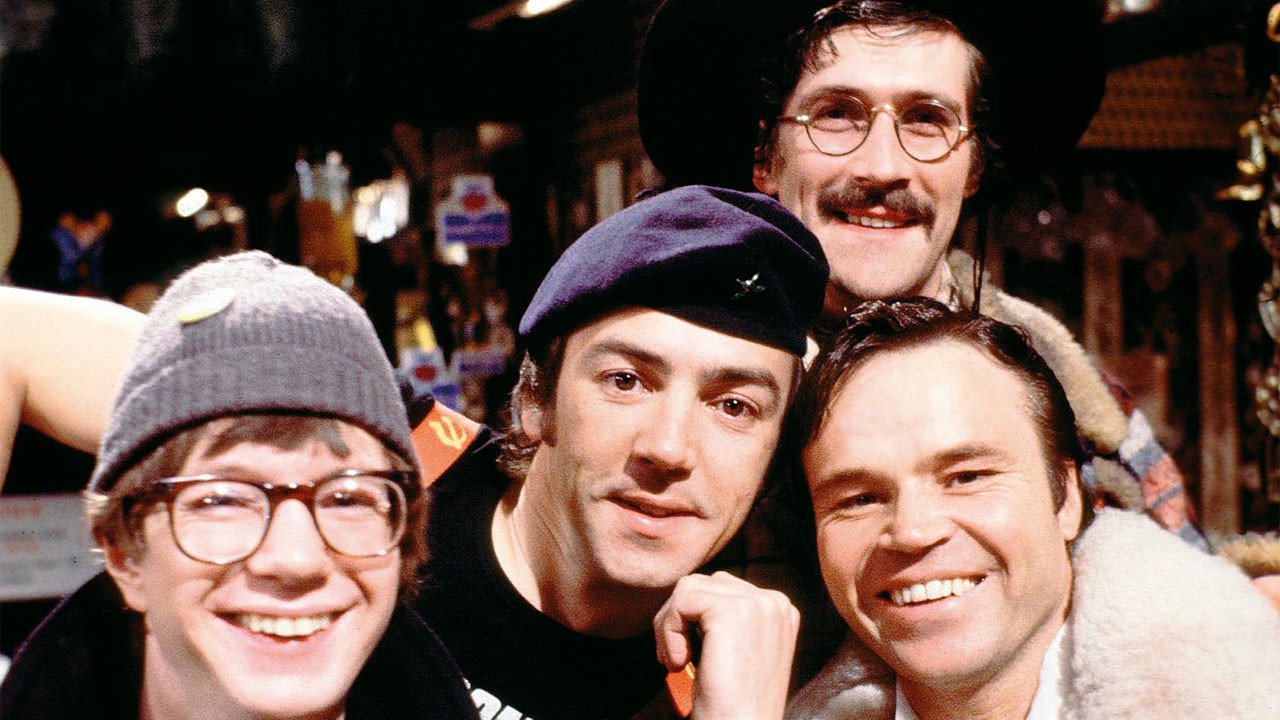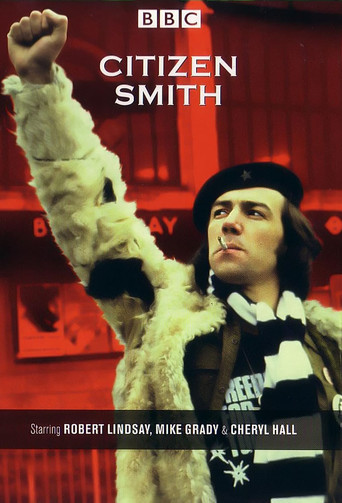

Was the word Katanga ever used by Wolfie after "Power to the people" quote? I watched the series for all episode 1977 onward. The series brilliantly depicted the many small rebel groups of the era. Wolfies character was exceptional, Shirl his girlfriend was played to perfection and her father and mother were typical of the Old Ways are best Brigade of the time. Any change from the norm was viewed with suspicion and was considered against society and only harm could come from such thoughts and actions. Wolfie and his comrades were a magnificent creation depicting urban unrest in the UK with humour, pathos and with a certain amount of sincerity in the beliefs that society should be changed. Even Wolfies avid avoidance of work in any shape or form and his bumming for drinks and money was humorous and extremely funny. Need to know about Katanga to settle argument.
... View MoreThe running gag in this show was that every other character of note had their own name for him. 'Foxie' 'Yeti' 'Smudger' 'Trotsky' & 'Smiffy' with I think, only Ken actually calling him 'Wolfie' Am I right in believing nobody ever called him Walter Henry? I have a memory that he only revealed that as his real name in the penultimate show.I do remember the original BBC promo for this series. 'Wolfie' was spraying graffiti on a short section of wall while Ken watched. He'd managed to write "THINK AHEA" before running out of wall, and amidst the ironic laughter of the audience began to berate the council for not building a wall long enough It set the tone for what followed, although almost immediately the show began to die in instalments as actor after actor left during its four season run. Some, like girlfriend Shirley were merely written out while her screen father, the more central character 'Charlie' was recast twice (if we include the pilot.) I feel though that when Stephen Grief's excellent 'Harry Fenning' was replaced, the show had peaked, perhaps reaching its zenith with "Glorious Day" the third season finale. Yep, it was 'that' episode where they 'liberate' the Scorpion Tank and invade London. I think even die hard aficionados would agree with me that should have been that.Particularly as season three had some of the most memorable episodes of all, introducing John Tordoff as the hyperbolically bizarre 'Tofkin.' Check out "Don't look down" and "Tofkin's revenge." Quite a few have pointed out the similarities between this series and Sullivan's next effort, the rather better known "Only Fools and Horses" and the similarities are indeed there. Both were set in a triangle of flat, pub and occasional exterior, and it is straightforward to recognise equivalent characters across both series. The malapropism that surrounded Wolfie's name was refined for Rodney, who was consistently called 'Dave' throughout by Trig, and of course there is the Citizen Smith episode that was called "Only Fools and Horses" which seems to round things up.I actually worked on this series in a minor, functionary role, during 1980. It is one of very few productions I can recall halting during the shoot as the studio crew were laughing so much it was putting the actors off, and this was during the fourth, and I consider poorest season. People were still talking about it for some time after, and quoting gags while Only Fools and Horses struggled to take hold in its early years.I think the reason that 'Only Fools' prospered and 'Smith' rather withered on the vine was the lack of breadth of story lines and a cast limited in numbers. There are only so many scrapes an Urban Revolutionary can get involved in and with so few lead characters, Sullivan ran out of steam rather early. This series has its moments though and is well worth a look. It had a recent re-run (late 2005) on one of the many BBC/ITV archive satellite channels (in this case UKTV Drama) and should re-appear before long. Until then we have the DVD's to keep us going.Power to the People!
... View MoreCitizen Smith was my favourite 70s sitcom.The first review on this gives an accurate picture of what it was about, and the people involved.Wolfie is one of lifes eternal losers, with visions of socialist political power (to the people).the most memorable scene I remember was when they launched a protest, and broke into the houses of parliament in order to vioce their disaproval, only to discover that all the MPs were on holiday.There are many similarities between 'Smith' and 'Only Fools & Horses' - the writing in both was superb.Perhaps the BBC & Robert Lindsay would consider a revival of this series, although I feel it is probably better left as it was - simply perfect!
... View MoreWolfie Smith is a fanatic who craves revolution. Leader of the Tooting Popular Front ( a Marxist political party which numbers six members), Wolfie is a wannabe freedom fighter who likes to call himself an "urban guerilla". He wants to overthrow the Capitalist oppressors of the working class and create a fair, equal and just society (with himself in charge). While he waits for the glorious day, he plays the guitar and sings his raucous songs, dressed in a Che Guevara T-shirt and a black beret with one star on it.Wolfie's attempts to seize power are thwarted time and time again, usually with hilarious consequences. Wolfie keeps a book containing a list of anyone who gets on the wrong side of him. Come the Glorious Revolution they'll be first against the wall, blindfold, last cigarette etc. But it's a very long list..."Citizen Smith" was written by John Sullivan, who went on to write the even funnier "Only Fools and Horses". This show contains characters with similar personalities. Wolfie Smith is a fast talker like Del-Boy, Ken is artistic like Rodney and Tucker is vague and confused like Grandad. "Citizen Smith" was a witty comedy from the 1970s that got better as it went along. The later series seemed funnier than the early episodes. Hopefully the show will be screened again. This is a classic.
... View More